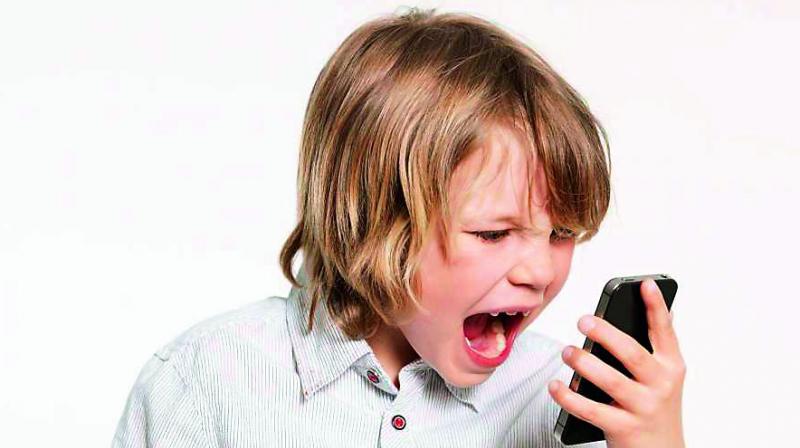Teaching kids to say please'
Raising a polite kid in today's world isn't an easy feat. But what if your virtual assistant can help?.

In the present scenario, every time we come across a well-mannered child, we take notice. This is because basic courtesy and etiquette are lacking in many children. In fact, with demanding careers and other commitments, parents find it hard to spend quality time with their young ones let alone instill social graces in them.
This disregard for courtesy can even be seen in children when they use devices. Not only children, but of the 41.7 per cent people in Telangana and Andhra Pradesh who use smartphones, how many say ‘please’ or ‘thanks’ when communicating with virtual assistants? Granted Siri, Cortana and Alexa exist to answer our questions. But would it hurt to be polite to them?
Children like adults simply give commands to these assistants and don’t bother to use courteous words. While it doesn’t seem like a harmful prospect on the face of it, this conditioning will eventually reflect when they mingle with people. Has the time has come for us to change this authoritative way of interacting with technology? Companies like Amazon and Google certainly think so. In fact, these companies are planning to use positive reinforcement to inculcate better manners.
Google will be rolling out an option called ‘Pretty Please’ while Amazon’s Alexa will incorporate ‘Magic word’. And if children use courteous words, these assistants will give positive reinforcement by saying “thanks for saying please,” “thanks for asking so nicely, or “you’re very polite”.
Perhaps it’s a bit ironic that in a country where 4.5 million Indians have put forward ‘marriage proposals’ to Google assistant, we have to be reminded to be polite to these very virtual assistants. K.R. Srinivas, a techie and resident of Begumpet, who loves gadgets says the older generation is much better with manners. “I noticed that my mother asks questions to Alexa or Siri very politely. We find that adorable. But the kids just boss around with the gadget. It is merely an instrument for them, as it is for me. I never really gave thought to how it impacts the behaviour of my niece or nephew but if such a feature is coming, then I would definitely want them to use it,” he says.
Positive reinforcement is a great way to mould the behaviour of children. While this feature may work wonders when it comes to teaching them etiquette, experts feel it may not help with communication. Dr Hrishikesh Giriprasad, Assistant Professor, Child Psychiatry, Nilofuer Hospital, says, “This feature helps in developing language and improving manners. Even their vocabulary can improve. But at the same time, children’s imaginative power will be impacted.”
Experts point out that children, especially those above seven years of age, who are exposed to this feature may soon start expecting the same reinforcements from adults. “But if they don’t get similar responses from the adults they interact with, they may eventually go back to the gadget that is friendly. This will affect their communication process,” feels Dr Giriprasad.
Cognitive tasks and emotional components need to be considered while interacting with such apps. When a child says something incorrect to an adult, the adult will immediately make him/her see what is wrong in the statement. But virtual assistants will never do that.
Observers also feel positive reinforcement varies from child to child.
Dr Bharath Kumar Reddy, Consultant Psychiatrist at Apollo Hospital, says, “There is always a gray area when it comes to which positive reinforcement will attract a child. It is not common to every child. Also, these apps are not tailor-made to cater to children. There will be a general reinforcement statement, which may work on one child but may not have an impact on the other.”
However, one can always hope that the kids who interact with Siri or Alexa will indeed learn some manners from them.

